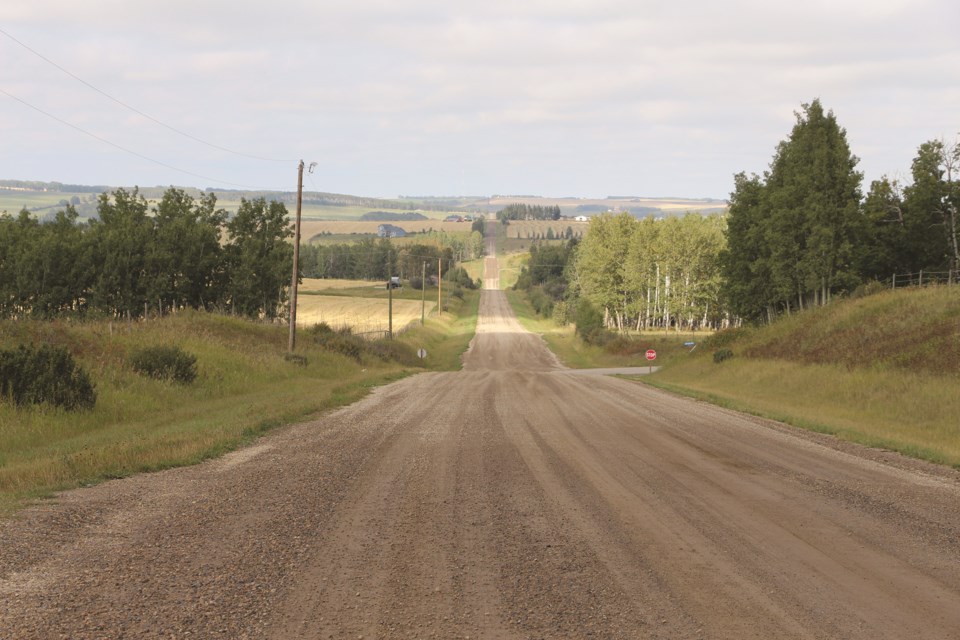A new Rocky View County (RVC) roads bylaw which was supposed to help make it easier for adjacent landowners to license undeveloped, publicly-owned access roads for their private drives or driveways drew a whole lot of backlash at a public hearing on Sept. 13.
RVC council received 35 letters representing several hundred county citizens and four other in-person complaints about the proposed Bylaw C-8316-2022. Those opposed included concerned private citizens and recreational trail and river users as well as local community groups from the county.
There were no public submissions received in favour of the bylaw, RVC Mayor and Division 2 Coun. Don Kochan confirmed as chair of the public hearing.
Most controversy with the bylaw seemed to be around clause 6a, which stated part of the purpose of the legislation was for; “providing dedicated access to the lands owned or occupied by the applicant and located immediately adjacent to the County road.”
The word “dedicated” represented a red flag to many of the opponents who wrote in or appeared in person at the public hearing to complain.
“Unfortunately, (RVC) administration has not indicated what they see as differentiating “private” and “dedicated” access and the bylaw does not define the term,” stated local advocacy group Rocky View Forward, which claimed in its letter to council to represent about 500 county residents. “In the absence of definitions in bylaws, legal interpretation must rely on dictionary definitions. The standard dictionary definition of “‘dedicated access’” is access designed to be used for one particular purpose or access used solely for one purpose.”
Rocky View Forward’s letter indicated the organization’s members believed this lack of clarity could potentially embolden landowners into taking more aggressive steps to bar public access to these public roads, which were now held under private lease.
“There seems to be a lot of heartburn over this word ‘dedicated,’ acknowledged Division 4 Coun. Samanntha Wright in council’s discussions during the public hearing. “It doesn’t seem to be defined anywhere. Would that be something we could potentially look at as having a definition of what it means? Because, right now, it is a rather ambiguous term.”
Currently undeveloped road allowances in RVC can be used by any member of the public for recreational access to local waterways and other County lands, whether they go through a private landowner’s land or not, or even if a special license allows private use agreements between the County and individual landowners for undeveloped access roads. A landowner cannot fence off or ban members of the public from using that road at any time if it is under license, and must, at a minimum, allow “foot traffic” onto these roads whenever people wish.
Those public access rights are also reinforced by Alberta government’s Traffic Safety Act, stated Steve Hulsman, manager of transportation services for RVC. Hulsman said at the meeting his staff thought by using the word “dedicated” rather than “private” they were making this point more clear, but acknowledged it appeared to have sown more confusion around the issue.
“Dedicated, we thought was better than private,” he said. “But certainly we can look into that and change it.”
Under further council questioning, Hulsman also confirmed when a private landowner enters into an agreement with the County to license an undeveloped road allowance for a special purpose it is only the adjacent landowners who must be informed. It’s an administrative process, he explained, and not a council process like a public road closure, which demands a public hearing before it can be enacted.
Al Schmidt, spokesperson for the Springbank Community Association, said this is something he organization felt must be addressed by the bylaw going forward. He told councillors during the public hearing that some kind of public engagement mechanism should be added so user groups’ access rights are also represented in these private licensing agreements.
“We would encourage council to consider ways to involve the public, and be creative about that,” he said.
Schmidt went on to suggest that landowners who have entered into these licensing agreements with the County must post signs declaring the road open to the public, with a County phone number and license number listed on it, if access is ever refused or intentionally obstructed.
His suggestion was well-received by several on council, including Coun. Wright, who mentioned it specifically alongside other potential amendments to the bylaw brought forth by council after the Sept. 13 public hearing closed.
She later moved that “Bylaw C-8316-2022 be referred to administration to prepare further amendments to the bylaw, and return to council no later than Jan. 31, 2023.”
However, not all on council agreed with the idea of sending administration back to the drawing board once again to “simplify” the bylaw. Division 7 Coun. Al Schule openly expressed his frustration with the entire process in this instance. He felt council should have left well-enough alone, and not opened the road-licensing can of worms in the first place.
“I find this whole thing absolutely ridiculous,” he stated. “It seems every time that we as council ask to simplify on a policy in place, we turn a five-page document into a 100-page document. I like to see things simplified. This (bylaw) to me is anything but simplified.”
At the end of the discussion, Wright’s motion passed by a vote of 6-1, with only Schule opposed.




